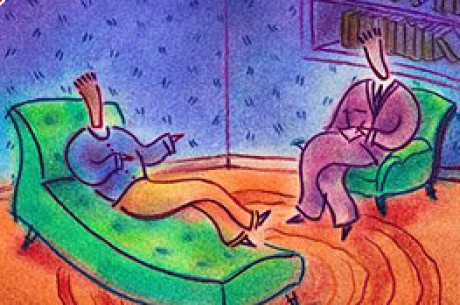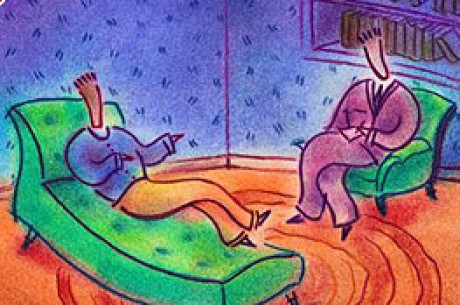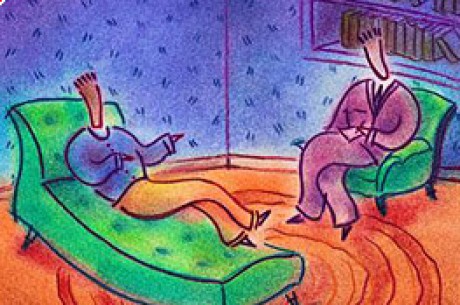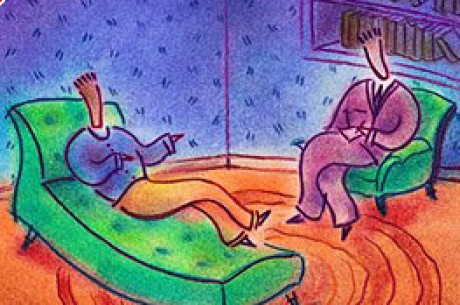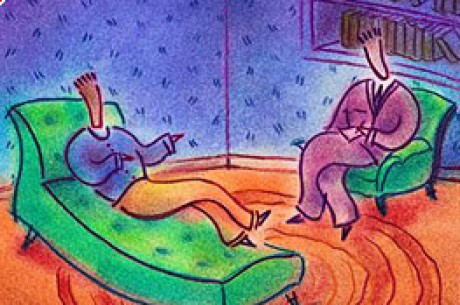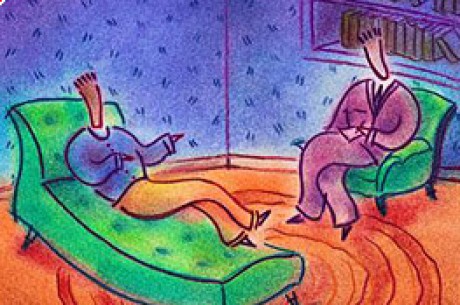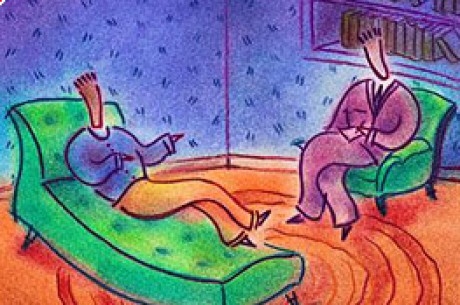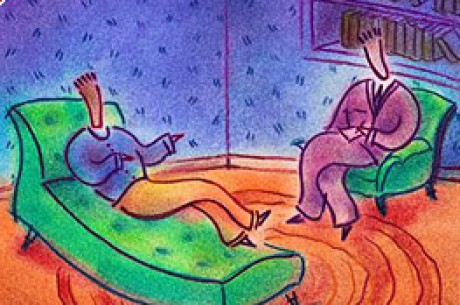The Poker Counselor's Corner (6)

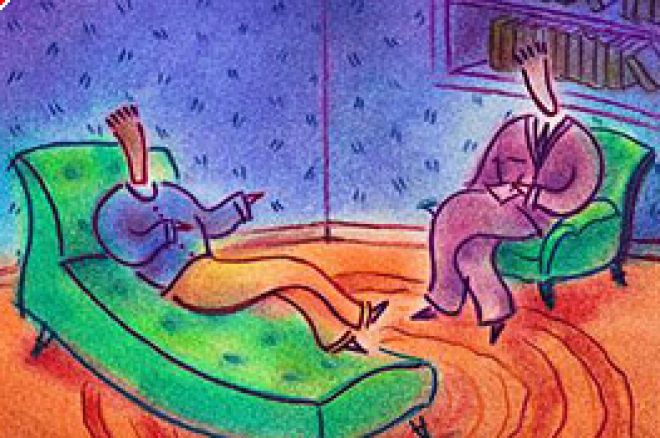
Editor's Note: In addition to being a poker enthusiast, gambling columnist, and lecturer, John is a National Certified Counselor (NCC) and practices in his home state of Pennsylvania. He has a Master of Arts degree in Counseling from West Virginia University, and a Bachelor's degree in Psychology with a minor in Sociology from Lock Haven University. You can arrange for interviews, speaking engagements, or ask your question to "the Poker Counselor" at [email protected].
Dear Poker Counselor, I know that I go on tilt. I can't help it. I mean, some of the beats I've taken online are disgusting - guys catching one-outers on the river against me, my pocket Aces/Kings NEVER seem to hold-up. Some of the things that happen to me are unbelievable. My thing is, sometimes I actually play better when tilting. - Submitted by Ben via email
Many people try to present poker as an emotionally stagnant contest. The whole "Poker Face" notion only helps to fuel this is idea. In reality, our thoughts and emotions drive us in nearly everything that we do. Everyone has emotional swings at the poker table. Some are more practiced and successful at masking those emotions from others (such as stone-faced Phil Ivey). I once asked Phil Hellmuth about this topic. A well known whiner at the poker table after a bad beat, he seemed to be a good candidate to talk about tilting and emotions at the tables. He explained it quite well by telling me that he played with 100% passion and an absolute craving to win. When unlucky cards drop, his reaction is a natural byproduct of that passion and desire. Since I understand that we are emotionally driven creatures, I know that feelings of frustration, disbelief, and disgust will inevitably rise after a tough card falls against you. Simple frustration/anger is not tilting, though. Tilting is when negative emotions affect your play and decision making. I contend that you can be angry due to a bad beat and still not truly tilt. So, you say, "... I go on tilt. I can't help it." Let's reframe that thinking to something such as the following: "I have emotional reactions after bad beats. That is natural. I know that I CAN prevent those emotions from making me tilt/play poorly."
Your last point is a bit interesting, as well. You contend that you actually play better when tilting. I've heard players claim that they play better when drunk, when super-tired, when tilting, etc. All of these claims seem to be psychological defense mechanisms at work. Our minds are very keen at rationalization. We can often make good excuses for ourselves in nearly all situations to help protect our self-confidence and ego. I doubt that you actually do play better when tilting. If you do, you should carefully re-inspect your regular game. Maybe the emotional rush that comes with tilting is plugging holes in your normal game, such as a lack of confidence to make tough call.
It seems to me that Limit games are pretty much just by the book. Not much in the way of bluffing and reading players. You have to get to Pot Limit and No Limit for the psychology of the game to get involved. - Excerpt from an online chat forum, re-printed with permission of the author MazMan
I like to keep my eye on the poker forums that discuss poker psychology. The discussion that followed the above prompt largely supported MazMan's point. It appears that most players assume that there is very little psychological skill involved in Limit poker. Most posters reflected the idea that Limit is mostly mathematical in nature, as you should figure the pot odds to drive most of your decisions. While it is true that Limit games may have less dramatic moments of emotionality and psychology, I would argue that poker psychology is very much a part of all poker spreads and variations. From penny/nickel games at the kitchen table to No Limit Hold 'Em in Monte Carlo, the players who understand and utilize poker psychology the best will win more often, in the long run.
We must remember that the No Limit version of poker has just recently boomed in popularity thanks to television coverage of high buy-in tournaments. Many poker veterans can recall the years past when casinos and card rooms had only a few selections of games to choose from, with almost all being Limit. The most skilled players still pulled in their profits in the long run, using poker savvy and skill to grind out extra bets. In many ways, I find Limit games to be even easier contests to use psychology to my advantage (especially in live games). In limit live games, players are often on psychological "cruise control." They exude more tells, fall into more predictable betting patterns, and simply fail to pay close attention to the action. This in not true in No Limit contests, where players are more intently masking their emotions and mixing-up their plays. Do not discount poker psychology during a Limit game. Your short-sightedness will certainly cost you a chance at a nice profit. Zone-in on reading your opponents, identifying their betting habits, finding players who you can bluff, and using their style against them. You will soon find yourself believing that there is a lot of psychology in Limit poker.
KEEP THE QUESTIONS COMING!! Email at [email protected]
Please visit our online poker room directory to see the best bonuses on the web!

